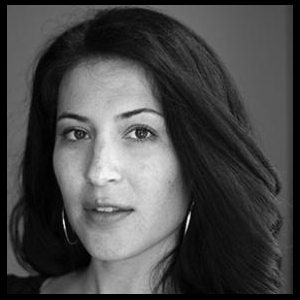I pass the feeder and yell, Grackle party! And then an hour later I yell, Mourning
dove afterparty! (I call the feeder the party and the seed on the ground the
afterparty.) I am getting so good at watching that I’ve even dug out the binoculars
an old poet gave me back when I was young and heading to the Cape with so
much future ahead of me it was like my own ocean. Tufted titmouse! I yell, and
Lucas laughs and says, Thought so. But he is humoring me, he didn’t think so at
all. My father does this same thing. Shouts out at the feeder announcing the party
attendees. He throws out a whole peanut or two to the Steller’s jay who visits on
a low oak branch in the morning. To think there was a time I thought birds were
kind of boring. Brown bird. Gray bird. Black bird. Blah blah blah bird. Then, I
started to learn their names by the ocean and the person I was dating said, That’s
the problem with you, Limón, you’re all fauna and no flora. And I began to learn
the names of trees. I like to call things as they are. Before, the only thing I was
interested in was love, how it grips you, how it terrifies you, how it annihilates and
resuscitates you. I didn’t know then that it wasn’t even love that I was interested
in, but my own suffering. I thought suffering kept things interesting. How funny
that I called it love and the whole time it was pain.
Published:
2021
Length:
Regular
Literary Movements:
Contemporary
Anthology Years:
2024
Themes:
Love & Relationships
Nature
Literary Devices:
Anaphora
a figure of speech in which words repeat at the beginning of successive clauses, phrases, or sentences
Dialogue
conversation between two or more people as a feature of a book, play, or movie
Epistrophe
the repetition of a word or phrase at the end of successive clauses
Essay/Prose
written or spoken language in its ordinary form, without metrical structure
Extended Metaphor
a metaphor that extends through several lines or even an entire poem
Paradox
a situation that seems to contradict itself
Simile
a comparison between two unlike things using the words “like” or “as”

